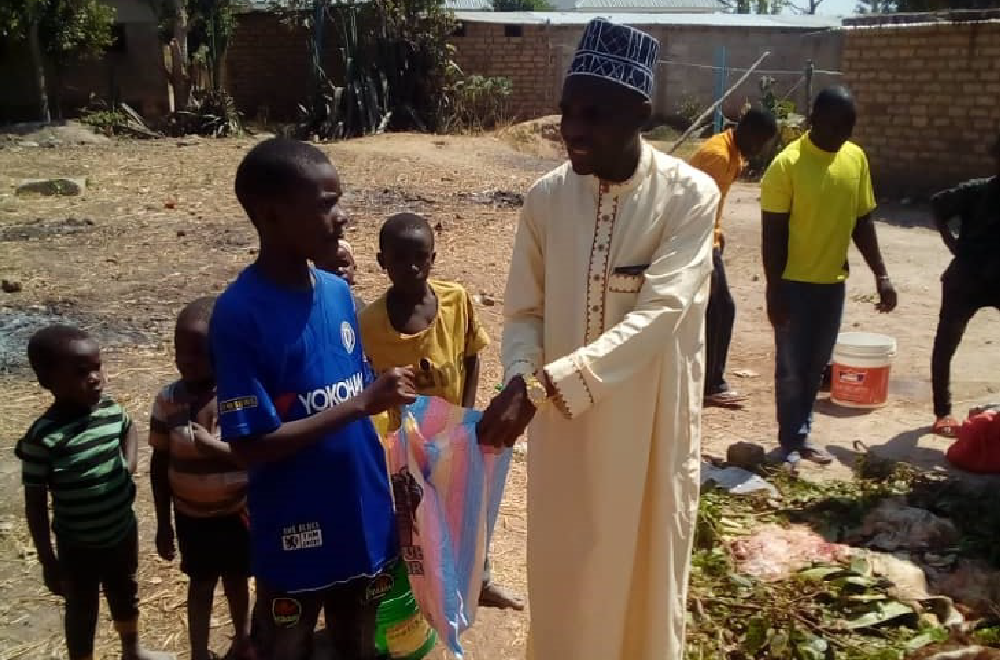
Every year, Muslims across the world mark the occasion of Eid al-Hajj by performing the ritual of Qurbani, where the meat is then distributed among the needy and poor. At WF-AID, we work with Africa Federation to facilitate your Qurbani orders in East Africa. This year, we also worked with our partners in Yemen to perform Qurbanis there, providing nutritional meat to families suffering in the war-torn country.
This year, 370 goat Qurbanis were arranged in Uganda, Tanzania, and Yemen for Eid al-Hajj, which feeds thousands of local people who are living in poverty.
72 of these goat Qurbanis were performed in Uganda, feeding 718 people in the following institutions:
- Ahlul Bait Mosque, Jinja
- Huda Mosque, Kibundaire, Jinja
- Masjid Fatimah, Nakalanga
- Masjid Madina, Tiriny
- Masjid Ammar Bin Yassir, Nansana
- Azahara Orphanage, Nansana
- Masjid Fatimah, Kyankwanzy
- Masjid Salman, Lwamata
- Central Bilal, Kampala
198 goat Qurbanis were performed in Tanzania, feeding 2,000 people in the following institutions:
- Bilal, Songea
- Bilal, Newala
- Bilal, Kilwa
- Udoe Mosque
- Bilal, Tabata
- Bilal, Mboga
- Bilal, Msata
- Bilal, Bagamoyo
- Temeke Hawza
In Yemen, we facilitated 100 sheep Qurbani in Sana’a, the meat of which was distributed to 200 families, feeding approximately 1000 people in need.
The practice of Qurbani can be traced back to Prophet Ibraham’s (as) willingness to sacrifice his son, Ismail (as), as an act of submission to Allah’s (swt) command; at the time of the great sacrifice, Allah (swt) intervened to provide Ibraham with a lamb to sacrifice instead, the Qurbani.
Qurbani was performed by the Prophet Muhammad (SAW) and therefore became an obligatory practice for Hajj Pilgrims. In keeping with the practice of Qurbani, WF-AID facilitates the slaughtering of goats on behalf of individuals who could not perform the Hajj but wish to gain the benefits from the Qurbani.
WF-AID facilitates Qurbani Aqiqah and Qurbani Sadaqah throughout the year. Find out more here.

